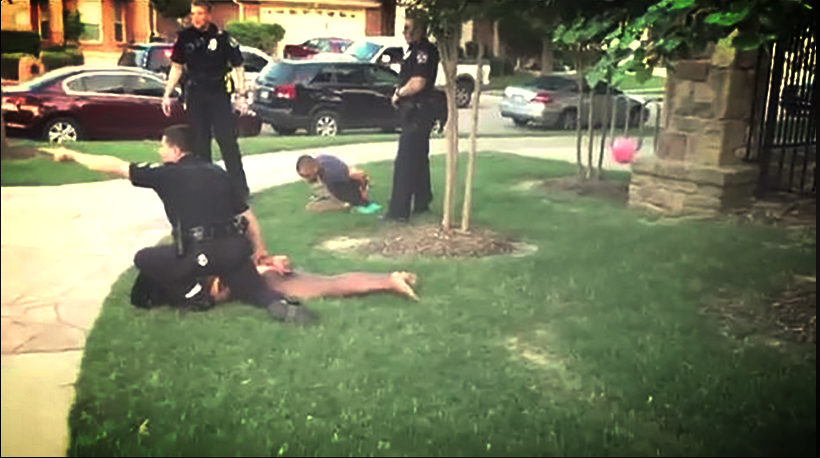I have a complicated relationship with law enforcement...
When I was a kid, growing up in Tacoma, I was often stopped and harassed by law enforcement while riding bikes with my friends. It got to the point where I started to carry the receipt for the bike my parents gave me, because police stopped me and accused me of stealing it so often.
In my sophomore year, I was riding with a white female friend. We were driving through Fircrest, a suburban town that abuts Tacoma. An officer pulled my friend over and whispered “are you okay?” as if I had kidnapped her and her mom’s VW Vanagon. She flipped TF out, on my behalf. It was my first conscious experience with ally-ship.
When I was 15 years-old, while standing on the bus stop by myself, after watching that terrible George Clooney Batman Movie. I was rushed, thrown to the ground, and had a gun pointed in my face by an officer because, like countless other black men "I matched the description..."
To this day, as a now 36 year-old, I get pulled over multiple times per year.
On the other hand, I have always loved the idea of police work. My favorite TV genre, by far, is the police procedural. I have an older brother who is an officer in Seattle. When I was in high school one my mentors was our SRO. He saw potential in me that I didn’t see--he constantly gave me life advice and kept tabs on me. To this day, whenever he sees me with my wife, he stops and tells embarrassing stories about how big of a dork I was in high school.
In 2004, I heavily considered applying to the Washington State Patrol, rather than going into teaching. I often think about the similarities between teaching and law enforcement. When I watch videos of law enforcement using force, I often think about the de-escalation skills that are essential in both careers. Teachers who can’t de-escalate conflict, set kids off, have chaotic classrooms and suffer frequent discipline issues. Officers who can’t de-escalate, tend to use force with more frequency and receive the most community complaints. The best teachers I know, value and immerse themselves in the communities they serve--much like how community policing has been one of the most effective reforms within law enforcement over the last 30 years.
There are good teachers and bad teachers; there are good police and bad police. Students know they have a bad teacher after a few days of class and can change their schedules or otherwise find ways to cope. But they won’t know they’ve encountered a bad officer until it’s far, far too late. Because of this, when teaching civil liberties, I do a workshop for my students on their rights when dealing with law enforcement, particularly the 4th, 5th and 6th Amendments. This workshop is the most important lesson I teach each year. I offer this handout that I created for my students here for your feedback, additions, contributions and if you’re so inclined, sharing.
The stakes are high for my students. Whenever I give a talk about teaching, I talk about the lack of predictability and danger that children of color and those in poverty face, on a daily basis. Never is that lack of predictability more dangerous than when it comes to encounters with those who are sworn to protect them. I know that no amount of “respectability” can keep people of color safe in America; Sandra Bland, Henry Louis Gates and James Blake have taught us so, but my hope is that I can increase the odds for my students and yours.
